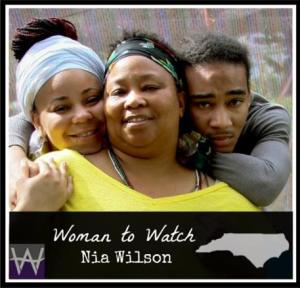>> I don’t know about you, but I am tired of watching the news and opening the newspaper to find another young black person harmed by police and vigilantes. In the wake of Ferguson, Missouri, and the Mike Brown shooting, plenty of buzz has arisen around police violence. Wake County, North Carolina, sadly experienced an incident last week.
I don’t know about you, but I am tired of watching the news and opening the newspaper to find another young black person harmed by police and vigilantes. In the wake of Ferguson, Missouri, and the Mike Brown shooting, plenty of buzz has arisen around police violence. Wake County, North Carolina, sadly experienced an incident last week.
DeShawn Currie, a young man living with his foster parents in Fuquay Varina, was >>confronted and pepper sprayed by police in his own home.
I want to see less of these incidents. I want to see my community protected. Even though men are most often the victims of state sanctioned gun violence, sometimes women have to take a stand.
That’s exactly what Nia Wilson of >>SpiritHouse in Durham does. SpiritHouse is an arts collective whose main objective is to stop gun targeting and violence in black and brown communities in Durham.
Nia works to protect young people from police targeting because at a young age, her own family was affected by targeting. “My eldest brother went to prison when I was in the fourth grade,” she recalled. Nia grew up in a close-knit family (– she is child 6 of 8 –) and was afraid when her brother went to prison. She was very close to him and at the time didn’t understand what was happening to him and why, but she remembers her family feeling shame about the incident.
In addition to SpiritHouse, Nia works with the Durham FADE coalition, a coalition of nine community organizations against racial profiling in the Durham community. The FADE coalition has five >>demands to increase transparency between the police department and the residents of Durham. People are not necessarily committing crimes, but making mistakes, Nia said. Black and brown communities are arrested and incarcerated at higher rates than whites, even when whites commit the same crimes. For example, while whites and black use marijuana at the same rates, black people are >>almost four times more likely to be arrested for the offense, she shared with me.
One of the first steps SpiritHouse is taking to stop police targeting is implementing restorative justice. Restorative justice is the notion that we should focus on the needs of the community, instead of punishing the offender.
Spirit House is training a few key members of the community to be mediators, people who facilitate discussion between offenders and victims to find more effective solutions than simple jailing. In a facilitating session, the offenders come out with a better understanding of their actions and learn steps to make it right. In restorative justice, offenders are considered members of the community instead of criminals or outsiders. Nia’s organization is only five weeks into training the community on restorative justice, but she’s looking forward to the change it will make in Durham.
Another way Nia provides support for the community is through >>Clean Slate Clinics. Working with the Southern Coalition for Social Justice, the Clean Slate Clinics help formerly incarcerated people get their records expunged, so that they have more job and housing opportunities. So far in Durham, they’ve hosted two clinics to which over 300 people attended. Another one is planned for Raleigh. These clinics are great ways for the community to see each other as human beings with needs.
Stopping police sanctioned violence is important to North Carolina’s women because it affects our families. For women to work together, we have to understand each other’s struggle. “We can’t see each other completely if we do not see the impact of police violence on our communities,” said Nia. “[Police violence] has a negative impact on our families — and women should care about these issues”
There are no comments
Add yours